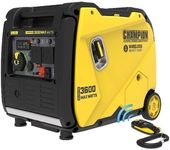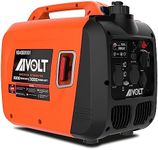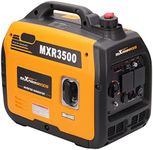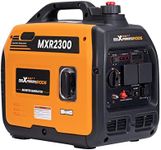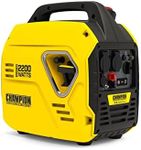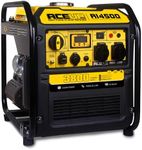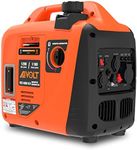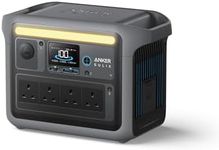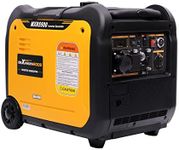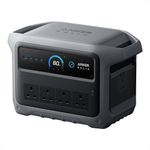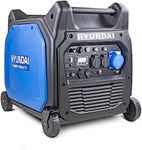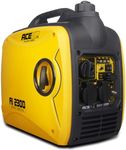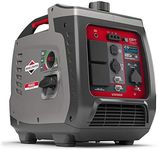Buying Guide for the Best Quiet Generators
When choosing a quiet generator, it's important to consider how and where you plan to use it. Quiet generators are ideal for situations where noise levels need to be kept to a minimum, such as camping trips, outdoor events, or residential areas. The key is to balance noise level with power output, portability, and fuel efficiency to ensure you get a generator that meets your needs without being disruptive.Noise Level (dB)The noise level of a generator is measured in decibels (dB) and indicates how loud the generator will be when in operation. This is crucial for maintaining a peaceful environment, especially in residential areas or during outdoor activities. Noise levels can range from around 50 dB, which is similar to a quiet conversation, to over 70 dB, which is comparable to a vacuum cleaner. For a quiet generator, aim for a noise level under 60 dB. Consider your environment and how much noise is acceptable when choosing the right noise level for you.
Power Output (Watts)Power output, measured in watts, determines how many devices or appliances you can run simultaneously. It's important because it ensures that the generator can handle your power needs. Generators can range from 1,000 watts for small, portable units to over 10,000 watts for larger, more powerful models. To choose the right power output, list the devices you plan to power and their wattage requirements, then select a generator that can handle the total wattage comfortably.
Fuel TypeGenerators can run on various fuel types, including gasoline, propane, and diesel. The fuel type affects the generator's efficiency, cost of operation, and availability of fuel. Gasoline is common and easy to find, but it can be less efficient and has a shorter shelf life. Propane is cleaner and has a longer shelf life, but may require additional equipment. Diesel is efficient and long-lasting but can be noisier and more expensive. Consider the availability and convenience of the fuel type in your area when making your choice.
PortabilityPortability refers to how easy it is to move the generator from one location to another. This is important if you plan to use the generator in different places, such as for camping or outdoor events. Portable generators are typically lighter and may have wheels and handles for easier transport. Consider the weight and size of the generator, as well as any additional features that make it easier to move, to ensure it fits your mobility needs.
Fuel EfficiencyFuel efficiency indicates how long a generator can run on a specific amount of fuel. This is important for reducing operating costs and minimizing the frequency of refueling. Fuel efficiency is often measured in terms of runtime at a specific load, such as half-load. More efficient generators will run longer on the same amount of fuel. Consider how long you need the generator to run and how often you want to refuel when evaluating fuel efficiency.
Inverter TechnologyInverter technology allows a generator to produce cleaner and more stable power, which is important for sensitive electronics like laptops and smartphones. Inverter generators are typically quieter and more fuel-efficient than conventional generators. If you plan to power sensitive devices, look for a generator with inverter technology to ensure safe and reliable operation.
